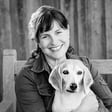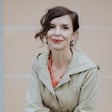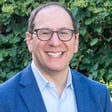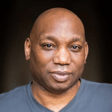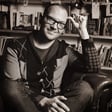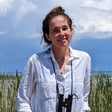
Episode 488: Bill McKibben, the Dark Realist, Faces the Light
"The point of my book and the point of this big day of action that we're doing across the country is to drive that notion away that this isn't alternative energy, that it's the obvious, straightforward, common sense and very beautiful way to power the world going forward. To use the analogy I've been using, it's not any longer the Whole Foods of energy: nice, but pricey. It is now the Costco of energy: cheap available in bulk on the shelf, ready to go," says Bill McKibben, author of Here Comes the Sun.
Today we have Bill McKibben, author, at last count, of 447 books, including his latest Here Comes the Sun: A Last Chance for the Climate and a Fresh Chance for Civilization. It’s published by Norton and if ever there was an American president open to the idea of non-fossil-fuel energy solutions, it’s this one.
Photosynthesize, baby, photosynthesize, just rolls off the tongue.
So if you’re a real drip and don’t know who Bill McKibben is, let me tell you a thing or two: He’s the author 19 books, including his pioneering book on climate called The End of Nature, and one of my favorite books on rethinking consumerism, Hundred Dollar Holiday. Aside from being a journalist basically his entire life, he’s an activist who helped found 350.org, and Third Act, which is a movement of Americans over 60 who bring their collective power to the climate and democracy fights. We call them silver-haired ponytails here in Eugene.
And his latest venture is SunDay, a creative climate project that celebrates solar energy through art, storytelling, and public engagement. The day of action is Sunday, September 21, whereby they'll celebrate solar, host e-bike parades, give heat pump tours, and rally for change. There’s a SunDay event in Eugene, but I’ll unfortunately be burning fossil fuels that day driving up to Portland for a book event. But visit sunday.earth to find a local event near you. Those solar panel subsidies are going bye bye since the wannabe fuhrer will be gutting anything that doesn’t belch CO2 into the air.
Bill also writes the incredibly popular Substack The Crucial Years, which has nearly 100,000 subscribers. You can learn more about Bill and his books at billmckibben.com, and you’re about to learn more about how he told William Shawn to fuck off, his start as a sports writer, being a pioneer writing about climate, and how he wrote Here Comes the Sun in about one month.
Newsletter: Rage Against the Algorithm
Show notes: brendanomeara.com

